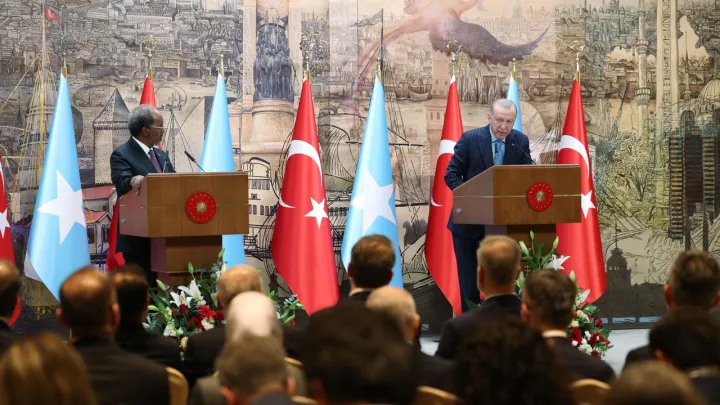Turkish foreign minister will meet with his Russian and Iranian counterparts in Doha to try to find a solution to the renewed fighting in Syria and avoid chaos on its doorstep.
The Qatar meeting which will bring together Russia's Sergei Lavrov, Türkiye's Hakan Fidan, and Iran's Abbas Araghchi will take place on Saturday.
The three countries have been partners since 2017 in the Astana process seeking to end the civil war in Syria even if they have supported opposite sides on the battlefield.
Moscow and Tehran have offered military support to help President Bashar al Assad crush the opposition.
Turkish President Recep Tayyip Erdogan, who this week called on Assad to "reconcile with his people", said on Friday that he "hoped the advance of the opposition would continue without incident", identifying their objective as Damascus.
Türkiye is no simple bystander, sharing a 900-kilometre (560-mile) border with Syria and hosting nearly three million Syrian refugees.
'Complicated relations'
The most important thing for Türkiye "is stability in Syria and a safe area to which Syrian refugees can return," said Gonul Tol, Türkiye director of the Middle East Institute in Washington.
Erdogan is no longer insisting on the full removal of the Syrian regime which would create a void that would benefit Daesh and PKK/YPG, she said.
Assad has rejected Erdogan's recent attempts to meet, insisting that beforehand Turkish forces must leave the northwest of Syria, where they are deployed to fight PKK/YPG terrorist groups.
Assad's refusal to meet Erdogan has even irritated Russian President Vladimir Putin, Tol said.
Power vacuum
"Assad managed to piss everyone off, including Iranians and Russians and Turks, everyone, because he has been dragging his feet on efforts to reach a deal with both Türkiye and others," she said.
Türkiye and Russia could seek to promote a transition government without Assad but with some elements of his regime and the opposition, she said.
Iran, for its part, is irked by the lack of support shown by Assad after the death of Hezbollah leader Hassan Nasrallah, whose forces had come to Assad's aid during the civil war.
➤Click here to follow our WhatsApp channel for more stories.
























